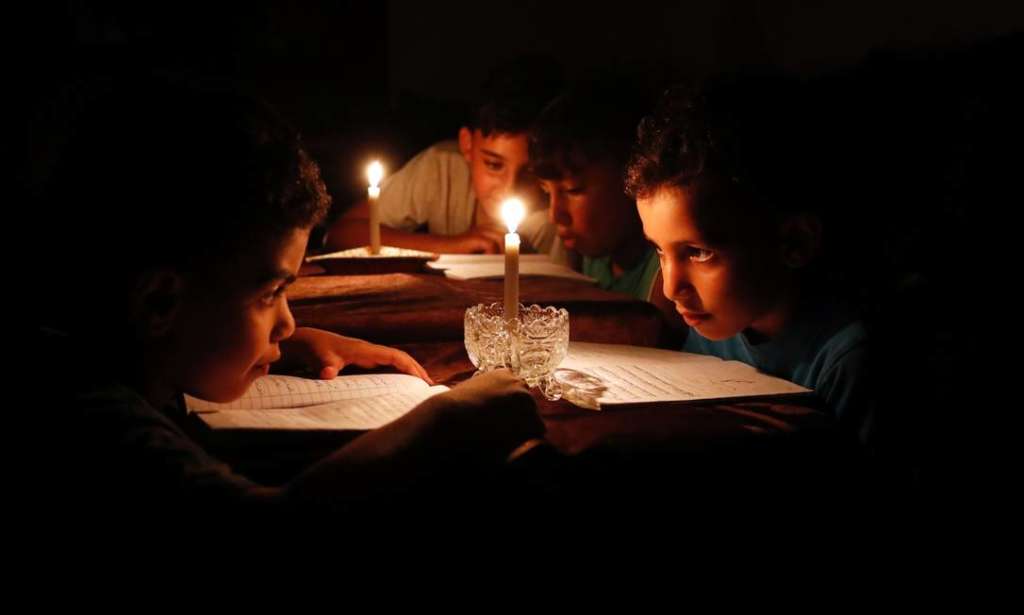London, Gaza, Ramallah – The United Nations warned on Tuesday the Gaza Strip may become “unlivable” after more than ten years of rule by the militant Hamas group and years of a stifling Israeli siege.
The UN declared in a report that the coastal strip may become unlivable by 2020 if the siege is not eased. It had made a similar warning in a 2012 report.
Robert Piper, the UN’s top humanitarian official in the Palestinian territories, said that all indicators “are going in the wrong direction”, reported Agence France Presse.
“We predicted some years ago that Gaza would fast become unlivable on a host of indicators and that deadline is actually approaching even faster than we predicted — from health access, to energy to water,” he said.
Piper said Gaza’s power supply was down to as little as two hours a day, medical care had been slashed and youth unemployment was over 60 percent.
“For most of us that unlivability point has already been passed”, he said. “And yet somehow the Gazans soldier on.”
The new UN report, “Gaza — Ten Years Later,” says more than 95 percent of Gaza’s water is now unfit for drinking.
The militant Palestinian movement Hamas seized Gaza from Palestinian President Mahmoud Abbas’s forces in June 2007, leading Israel to impose a crippling blockade which critics say indiscriminately punishes Gaza’s two million residents.
The strip, wedged between Israel, Egypt and the eastern Mediterranean, is barely 40 kilometers long and 10 kilometers wide.
Since 2013 Egypt, the only other country with which Gaza shares a border, has largely closed its crossing and destroyed hundreds of smuggling tunnels that provided a vital economic lifeline whilst also allegedly being used by Hamas to bring in weapons.
Hamas has fought three wars with Israel since 2008, the most recent in 2014.
Gaza, one of the most densely populated places in the world, has suffered massive destruction in each of the conflicts.
The Palestinian Authority, which runs the internationally recognized government in the West Bank, is making its own efforts to squeeze Hamas, reducing energy funding and allegedly cutting the number of travel permits issued to sick Gazans seeking medical treatment outside the territory.
Abbas had acknowledged on Tuesday that the recent measures taken in Gaza were aimed at pressuring Hamas to “reverse its coup practices.”
After being expelled by Hamas in 2007, the PA continued to pay the salaries of more than 40,000 employees who are not actually working. It has sought to reduce their salaries in recent months, while forcibly retiring others.
A recent poll found 88 percent of Palestinians opposed the move, which analysts say is designed to pressure Hamas by creating tension in Gaza.
Piper said the PA’s objective of ending the split between Palestinian factions was “legitimate” but warned that some measures were indiscriminate.
He said cuts to the salaries of employees who were not working are “arguably a legitimate means of putting some pressure on the de facto authorities in Gaza”.
But he said other measures “are much less palatable”, including energy cuts and cutting the number of healthcare travel permits issued.
“The Palestinian Authority has been taking certain measures to at least slow access to proper health care,” he said.
Several mediations, especially Arab ones, have failed to end the Palestinian division.
Meanwhile, Hamas circles in Gaza voiced optimism after holding intense talks with Egyptian officials in Cairo that that Egyptian authorities will take “positive and responsible” measures towards the strip.
Head of Financial and Energy Affairs in Gaza Youssef al-Kiyali said that the agreement with Cairo included establishing a trade exchange with the coastal strip and providing basic needs for the residents, as well as fuel supplies.
He expected the aid to arrive in the next few days, pledging that the area will also witness an improved electricity supply.
In addition, revealed Kiyali, an Egyptian medical team will travel to Gaza to inquire about the area’s health problems and needs.
